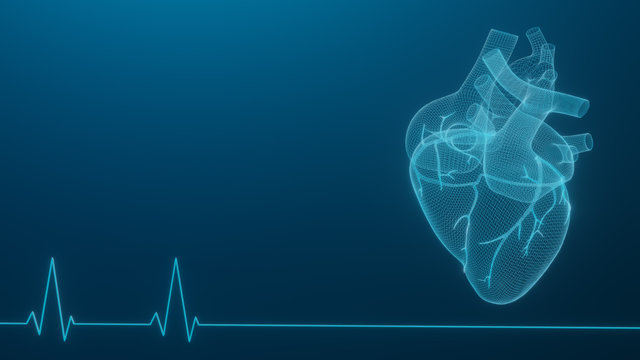Comprehending the Value of Cardiology in Modern Health Care Providers
Cardiology plays a vital function in modern-day medical care, specifically as cardiovascular disease remains to be the leading reason for death worldwide. Breakthroughs in diagnostics and treatment have changed individual treatment, enabling earlier treatments and boosted outcomes. Furthermore, the shift in the direction of preventative cardiology empowers people to manage their health and wellness proactively. As modern technology remains to evolve, the combination of innovative services may further redefine cardiology's impact on public health, motivating a better assessment of emerging fads and their effects.
The Occurrence of Heart Condition and Its Influence On Public Health
Although cardiovascular disease continues to be the leading reason of fatality internationally, its effect expands much beyond specific clients to influence public wellness systems and economies. The high occurrence of heart problem positions a considerable strain on health care resources, requiring enhanced financing for rehab, avoidance, and treatment programs. Public wellness initiatives have to attend to risk elements such as excessive weight, cigarette smoking, and less active lifestyles, which add significantly to the climbing incidence of heart conditions.Moreover, the financial worry associated with cardiovascular disease is tremendous, encompassing not only straight medical expenses however additionally indirect expenses connected to shed performance and premature death. Neighborhoods encounter challenges in handling these expenses, usually causing differences in healthcare gain access to and results. As the populace ages and lifestyle-related threats proceed to rise, the urgency for effective cardiology interventions ends up being vital. Dealing with heart illness is not just a matter of private wellness but also an important public wellness top priority.
Advancements in Heart Diagnostics and Imaging Techniques
Current innovations in cardiac diagnostics and imaging strategies have actually changed the area of cardiology, boosting the capability to check and find heart problem. Methods such as cardiac MRI, CT angiography, and echocardiography have come to be significantly sophisticated, providing thorough photos of cardiac structures and features. These techniques allow for the early identification of problems like coronary artery illness, heart failure, and valvular disorders.Moreover, innovations in non-invasive diagnostics, such as wearable modern technology and remote tracking devices, have empowered individuals and healthcare service providers. These devices help with real-time tracking of heart rhythms and other crucial indicators, resulting in prompt interventions. Additionally, expert system is being integrated right into imaging analysis, boosting accuracy and performance in diagnosis.
Technologies in Treatment Alternatives for Heart Conditions
Current advancements in cardiology have actually led to substantial innovations in therapy options for heart disease. These include sophisticated medical techniques that improve step-by-step outcomes and arising medications that use brand-new avenues for treatment. As the area evolves, these advancements play a crucial duty in enhancing person treatment and results.
Advanced Surgical Techniques
Technologies in medical techniques have changed the landscape of cardiology, supplying new expect individuals with heart disease. Minimally invasive treatments, such as catheter-based interventions, have substantially reduced recovery times and healthcare facility keeps. Techniques like robotic-assisted surgery improve precision, enabling doctors to browse intricate anatomical structures with greater precision. Developments in imaging innovation assist in real-time visualization throughout treatments, enhancing results. Transcatheter aortic valve replacement (TAVR) exhibits an innovation in dealing with aortic constriction, allowing valve replacement without open-heart surgery. Additionally, hybrid methods that integrate surgical and catheter-based methods provide customized remedies for different cardiac problems. These sophisticated surgical techniques not just boost individual security but additionally increase treatment choices, emphasizing the crucial duty of technology in modern cardiology techniques.
Emerging Therapies and drugs
As the landscape of cardiology remains to progress, emerging therapies and medications play a crucial function in improving treatment alternatives for heart disease. Developments such as unique anticoagulants and advanced lipid-lowering representatives have actually transformed the administration of heart diseases, substantially minimizing client morbidity and death. Furthermore, the growth of gene therapies and regenerative medication offers encouraging avenues for dealing with conditions formerly regarded irreversible. Clinical trials are continually exposing the efficiency of these therapies, pressing the boundaries of traditional therapies. Additionally, the combination of electronic health modern technologies facilitates individualized medication, permitting for tailored treatment strategies based upon genetic and way of life variables. Collectively, these innovations emphasize the dynamic nature of cardiology, improving individual results and redefining criteria of treatment in modern health care.
The Function of Preventive Cardiology in Individual Treatment
Preventive cardiology plays a necessary duty in person treatment by focusing on the identification of risk elements that add to heart problem. Through way of life adjustment methods and very early discovery methods, doctor can successfully minimize the incidence of cardiovascular events - Dr Garcia. This proactive method not only improves patient outcomes but additionally advertises long-lasting health and wellness
Danger Element Identification
While heart diseases continue to be a leading reason for morbidity and mortality worldwide, effective danger element identification functions as a keystone of precautionary cardiology. Determining risk variables such as high blood pressure, family, diabetes mellitus, and hyperlipidemia history is important for very early intervention. Healthcare specialists use various evaluating techniques to evaluate these aspects, permitting customized precautionary measures. Furthermore, understanding a person's way of life selections, such as cigarette smoking and physical lack of exercise, additionally informs danger analyses. This extensive evaluation allows clinicians to establish tailored care strategies aimed at mitigating threats. By prioritizing danger factor identification, medical care systems can enhance individual end results and reduce the total burden of heart diseases, ultimately contributing to enhanced public wellness techniques and resource appropriation.
Lifestyle Adjustment Methods
A multitude of studies highlights the important duty of lifestyle modification strategies in decreasing cardiovascular illness threat. These strategies encompass dietary modifications, increased exercise, smoking cessation, and weight monitoring. By visit this website adopting a heart-healthy diet rich in fruits, veggies, entire grains, and lean healthy proteins, people can lower cholesterol levels and blood pressure. Regular exercise strengthens the heart and boosts total cardio health. Additionally, quitting smoking significantly decreases the risk of cardiovascular disease and enhances recovery rates for those with existing problems. Weight monitoring better adds to cardio wellness by mitigating various other threat aspects such as diabetic issues and hypertension. Implementing these lifestyle transforms not just promotes individual well-being yet additionally functions as a cornerstone of preventive cardiology in person treatment.
Very Early Detection Techniques
Lifestyle alterations considerably add to reducing cardio condition threats, however they are most effective when coupled with very early detection strategies. Preventative cardiology emphasizes the value of recognizing potential heart concerns prior to they escalate right into major problems. Methods such as blood stress tracking, cholesterol screening, and progressed imaging technologies like echocardiograms play critical functions in evaluating cardio health. Biomarkers and genetic screening likewise boost the precision of very early detection, permitting tailored preventative approaches. Routine heart risk analyses empower healthcare suppliers to intervene proactively, possibly protecting against cardiovascular disease and strokes (Cardiology Jupiter). By incorporating these very early detection read review techniques right into routine care, individuals can take advantage of timely way of life treatments and targeted treatments, eventually boosting and enhancing end results quality of life
Integrating Innovation Into Cardiology Practices
As innovations in technology continue to reshape different areas, the assimilation of cutting-edge tools and systems into cardiology methods has actually come to be essential for enhancing client treatment and end results. Telemedicine platforms permit cardiologists to keep an eye on patients remotely, improving access to care while minimizing the worry on healthcare facilities. Wearable devices, such as smartwatches, enable continuous heart rate monitoring, notifying both doctors and individuals to possible problems in real-time. Furthermore, expert system (AI) is being used to analyze large amounts of cardiac information, aiding in very early medical diagnosis and individualized treatment strategies. Advanced imaging strategies, consisting of 3D echocardiography, boost visualization of heart structures, resulting in much more accurate interventions. Digital health and wellness documents (EHRs) streamline person details administration, guaranteeing that cardiologists have immediate accessibility to critical information. Together, these technological advancements are changing cardiology, advertising proactive management and boosted health and wellness outcomes for individuals with cardiovascular conditions.
The Relevance of Individual Education and Interaction
Individual education and involvement play a critical duty in the administration of cardio health. By furnishing patients with understanding regarding their problems, treatment alternatives, and lifestyle modifications, healthcare suppliers empower individuals to take an energetic duty in their treatment. This positive strategy can result in enhanced adherence to suggested medications, dietary adjustments, and workout programs, inevitably lowering the risk of complications.Engagement likewise promotes a solid patient-provider relationship, encouraging open communication and trust fund. When clients really feel educated and entailed, they are more probable to voice worries and ask inquiries, which can bring about better medical end results. In addition, instructional sources, such as workshops or electronic systems, can enhance understanding and promote self-management strategies. In general, focusing on client education and interaction is necessary for boosting cardio wellness, boosting top quality of life, and lowering health care prices connected with heart diseases.
Future Trends in Cardiology and Their Prospective Effect

Often Asked Questions
What Lifestyle Adjustments Can Lower Heart Condition Danger?
The present question addresses way of living adjustments that can considerably decrease cardiovascular disease threat. Cardiologist near me. Taking on a balanced diet, participating in routine exercise, keeping a healthy and balanced weight, managing anxiety, and staying clear of tobacco can especially enhance cardiovascular wellness
How Can I Identify Early Signs of Heart Issues?
Recognizing very early signs of heart troubles includes surveillance signs such as chest discomfort, lack of breath, tiredness, and uneven heartbeat. Timely recognition of these signs can trigger required clinical assessment and treatment for better results.
What Are the Distinctions Between Cardiologists and Heart Surgeons?
The differences between cardiologists and heart doctors depend on their duties; cardiologists mainly detect and manage heart disease with non-invasive approaches, while cardiac cosmetic surgeons execute procedures to deal click this site with structural heart problems. Each plays an essential, distinct role.

How Typically Should I Get My Heart Health Checked?
The frequency of heart checkup differs based upon individual risk variables. Normally, adults should undertake examinations every one to 2 years, while those with status quo may require even more regular assessments as suggested by health care professionals.
What Duty Does Genetics Play in Heart Problem Danger?
Genes considerably influences cardiovascular disease danger, with domestic patterns suggesting inherited problems. Specific genetics can predispose people to hypertension, cholesterol problems, and various other cardiovascular troubles, highlighting the value of genetic screening in evaluating heart health and wellness. Heart disease stays the leading reason of death around the world, its impact prolongs much beyond specific patients to impact public health systems and economic climates. Public wellness initiatives need to address danger variables such as obesity, cigarette smoking, and less active way of lives, which add greatly to the increasing occurrence of heart conditions.Moreover, the financial worry associated with heart illness is tremendous, incorporating not only direct clinical prices but likewise indirect costs connected to lost productivity and premature death. Preventative cardiology plays an important function in person care by focusing on the identification of danger aspects that add to heart condition. Artificial intelligence (AI) and device discovering are boosting diagnostics and client tracking, making it possible for very early discovery of heart conditions. The distinctions in between cardiologists and heart doctors exist in their duties; cardiologists primarily handle and identify heart problems with non-invasive techniques, while cardiac specialists do medical treatments to remedy structural heart problems.